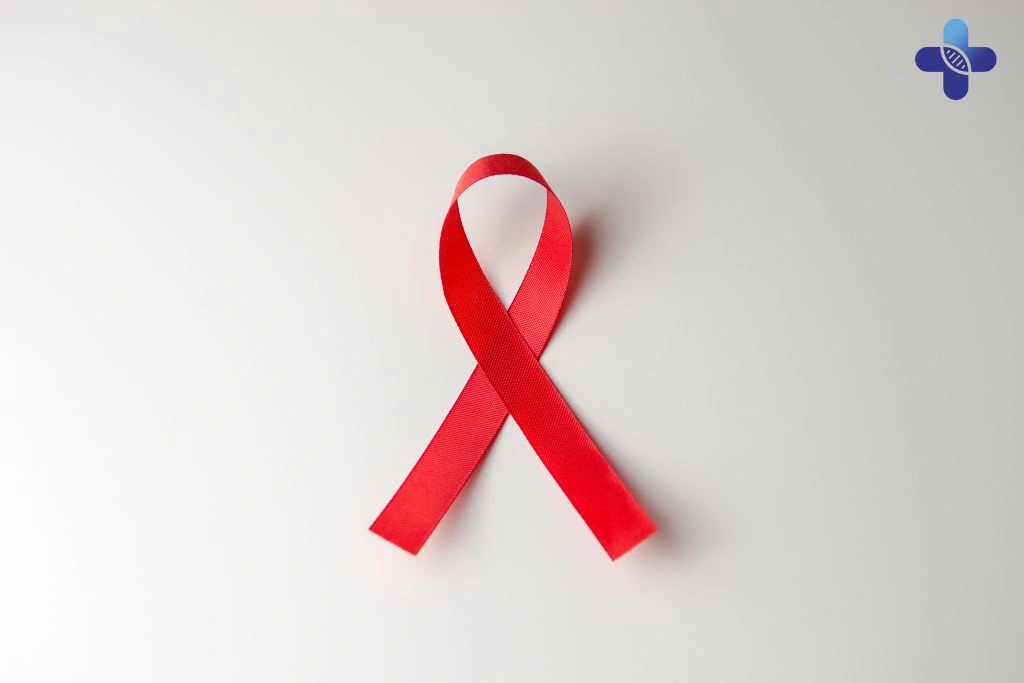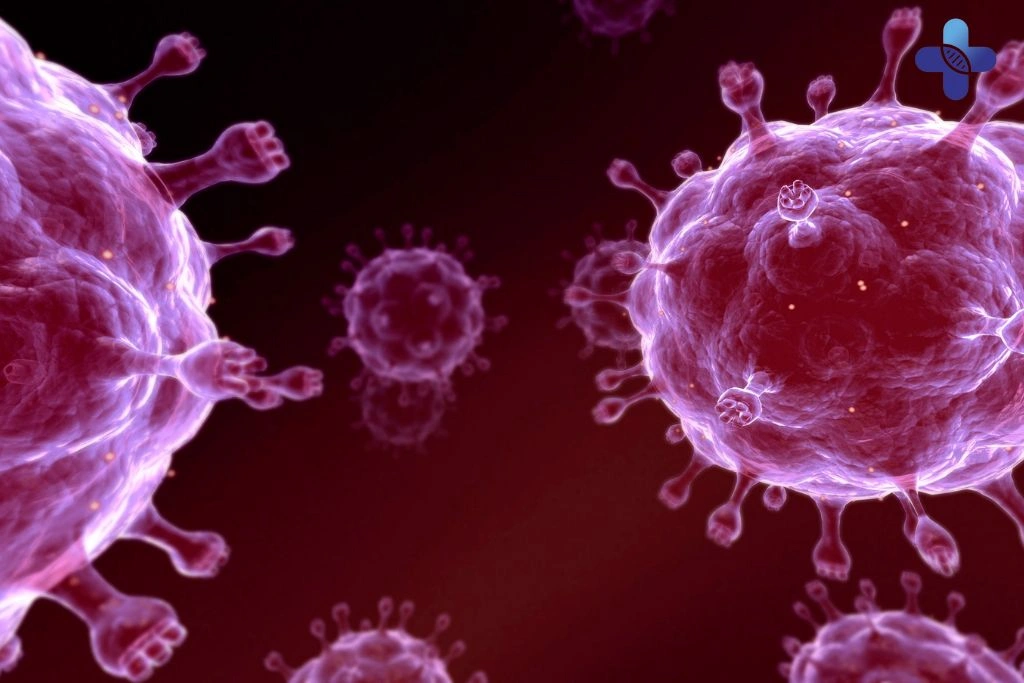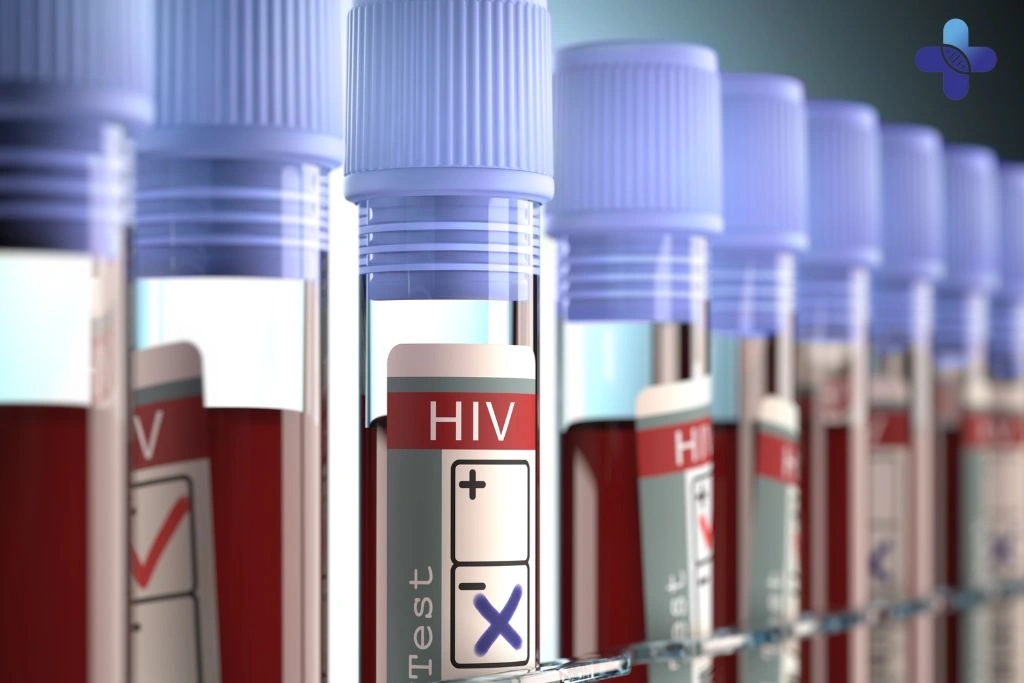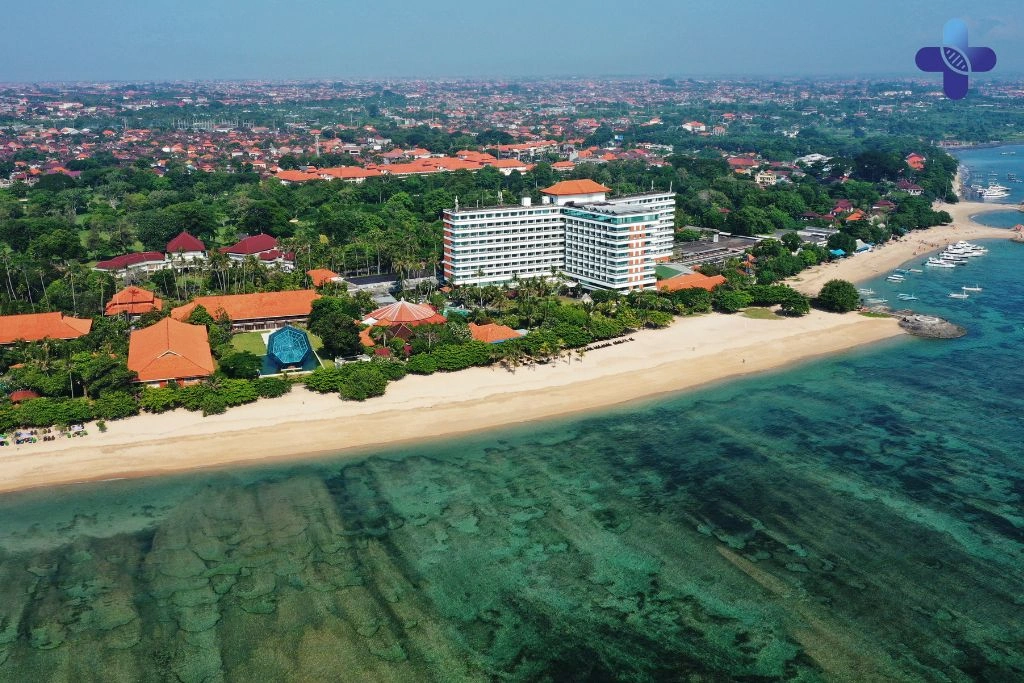While Bali remains a world-renowned destination for its natural beauty and vibrant culture, health awareness is often overlooked amid the excitement. Among the most STI in Bali, HIV and its advanced stage—AIDS—remain a significant concern, especially for sexually active travelers and long-stay expats. Understanding how HIV spreads, how it progresses to AIDS, and how to protect yourself is essential to ensure your stay is not only enjoyable but also safe. At Life Everyouth Clinic Bali, we believe that early education, regular testing, and compassionate care are the strongest defenses against HIV/AIDS.

Understanding AIDS in Bali: Prevention, Care, and What Every Traveler Should Know
While Bali is a tropical paradise celebrated for its rich traditions, lush landscapes, and vibrant nightlife, it’s also a destination where visitors should remain mindful of long-term health risks. Amid the excitement of travel, it’s easy to overlook the importance of sexual health—yet among the most STD in Bali, HIV remains a serious concern. When left untreated, HIV can develop into AIDS (Acquired Immunodeficiency Syndrome), a life-altering condition that compromises the immune system and increases vulnerability to infections and diseases.
Sexually active individuals, long-term travelers, digital nomads, and expatriates are particularly encouraged to stay informed and proactive. At Life Everyouth Bali, we are committed to raising awareness about HIV and AIDS, offering confidential testing, and providing compassionate, stigma-free care for all who need it. Whether you’re visiting for a week or living here for years, protecting your health starts with education and early detection.
What Is AIDS and How Is It Different from HIV?
AIDS (Acquired Immunodeficiency Syndrome) is the advanced stage of HIV (Human Immunodeficiency Virus) infection, occurring when a person’s immune system has been severely damaged by the virus. HIV targets CD4 cells (T-cells), which are essential for fighting infections. As the number of these cells drops significantly, the body becomes unable to defend itself even against common illnesses. AIDS is not a single disease but a collection of symptoms and opportunistic infections that arise due to a weakened immune system. These complications can include tuberculosis, pneumonia, and certain cancers like Kaposi’s sarcoma or lymphoma.
In Bali, cases of AIDS in Bali often go undetected due to low public awareness and high social stigma. Many people living with HIV may not realize the infection has progressed to AIDS until they begin experiencing severe symptoms. That’s why Life Everyouth Bali emphasizes the importance of regular HIV testing—especially for sexually active individuals or those who may have been exposed. With early diagnosis and consistent antiretroviral therapy (ART), people living with HIV can remain healthy and prevent the development of AIDS entirely.
Symptoms of AIDS in Bali
Recognizing the symptoms of AIDS is crucial, especially for travelers and expats who may not be aware of how the disease progresses. While HIV may cause few or no symptoms in its early stages, AIDS in Bali can manifest through severe and persistent health issues that signal the immune system is no longer functioning properly. Understanding these symptoms can help you seek timely care and prevent further complications.
Persistent Fever and Night Sweats
Prolonged fever is one of the earliest and most consistent symptoms seen in individuals with AIDS. Unlike fevers from temporary infections, these are low-grade but persistent, often lasting for weeks without clear cause. Night sweats are another common sign—so intense they drench clothing and sheets, regardless of the room’s temperature. In the context of AIDS in Bali, these symptoms may be misinterpreted as tropical illnesses or exhaustion from travel, which makes medical evaluation even more critical. At Life Everyouth Bali, we help you differentiate between environmental causes and underlying immune concerns.
Rapid Weight Loss and Fatigue
Sudden, unexplained weight loss of more than 10% of body mass is considered a red flag, especially when accompanied by chronic fatigue. This condition, often called “wasting syndrome,” occurs when the body can no longer absorb nutrients effectively or when it’s constantly battling infection. Individuals with AIDS in Bali may dismiss this as a result of heat or diet change, but in reality, it could signal immune system failure. If you’re feeling exhausted despite rest and losing weight without trying, it’s time to consult a medical professional at Life Everyouth.
Chronic Diarrhea and Digestive Problems
The gastrointestinal tract is often one of the first systems affected when AIDS develops. Chronic diarrhea lasting more than a few days can result in severe dehydration, malnutrition, and even hospitalization—especially in hot, humid climates like Bali. The symptom is often caused by parasites, bacteria, or viruses that a weakened immune system cannot fight off. If you’re experiencing long-term digestive issues during your stay, it could be a warning sign of AIDS in Bali, and early testing at Life Everyouth Bali is strongly recommended.
Swollen Lymph Nodes and Frequent Infections
Swollen lymph nodes—particularly in the neck, groin, or underarms—are a visible marker that the immune system is under stress. In the case of AIDS, this is often accompanied by repeated or unusually severe infections: oral thrush (a white coating in the mouth), pneumonia, shingles, or skin conditions. These infections can become recurrent or difficult to treat. At Life Everyouth, we offer targeted diagnostics to distinguish common infections from symptoms associated with AIDS in Bali, ensuring timely and effective intervention.
Neurological Symptoms
As HIV progresses to AIDS, it can affect the nervous system, leading to HIV-associated neurocognitive disorders (HAND). Symptoms include memory loss, poor concentration, confusion, depression, and even personality shifts. These changes can be subtle at first and may be mistaken for travel fatigue or stress. However, in more advanced cases of AIDS in Bali, these neurological symptoms signal that the brain is being directly affected by opportunistic infections or inflammation. At Life Everyouth Bali, we perform comprehensive evaluations to assess neurological involvement and provide referrals to specialist care if needed.

How AIDS Spreads in Bali
Understanding how AIDS in Bali spreads is essential for prevention, especially for international visitors, expats, and sexually active individuals. AIDS itself is not contagious; it develops as a result of untreated HIV in Bali. HIV is the virus that spreads from person to person and, if not managed, can progress into AIDS. In Bali’s dynamic social landscape, where spontaneous interactions and nightlife are common, the risk of HIV transmission increases—especially without proper precautions.
Sharing Needles or Injecting Equipment
One of the highest-risk methods of HIV transmission is through the sharing of needles or syringes. Whether for recreational drug use, unregulated tattoos, or cosmetic injections, using contaminated equipment can introduce the virus directly into the bloodstream. HIV can survive inside a syringe for hours, making reuse especially dangerous. While reputable clinics and tattoo studios in Bali uphold international hygiene standards, some unlicensed or roadside establishments may not. For those seeking such services, it’s essential to verify the provider’s credentials. At Life Everyouth Bali, we regularly counsel individuals on avoiding these risks and offer referrals to verified, safe providers—helping reduce new cases of AIDS in Bali linked to unsafe practices.
Blood Transfusions and Medical Exposure
Although less common in modern healthcare settings, HIV transmission through blood transfusions or contaminated surgical instruments still poses a risk—especially in facilities lacking proper sterilization standards. This is particularly important for tourists or residents who might seek emergency or elective medical procedures in remote or informal settings. While most licensed hospitals in Bali are well-regulated, travelers should always confirm that the clinic follows universal precautions, especially when undergoing surgery, dental work, or IV treatments. At Life Everyouth Bali, we adhere strictly to WHO-compliant sterilization protocols, ensuring your treatment is safe, secure, and free of risks associated with AIDS in Bali.
Mother-to-Child Transmission
HIV can be transmitted from mother to child during pregnancy, childbirth, or breastfeeding if left unmanaged. Without intervention, the transmission rate can be as high as 25–30%. However, with antiretroviral therapy and medical planning, this number drops to below 1%. This makes prenatal care and early HIV testing essential for expecting mothers. For long-stay expats, digital nomads, or international families living in Bali, accessing this care can be challenging without local knowledge. At Life Everyouth Bali, we provide supportive prenatal screening and treatment plans designed to reduce the risk of AIDS in Bali affecting newborns—because every child deserves a healthy start.
Myths About Casual Transmission
Despite decades of public education, harmful myths still surround how HIV is transmitted. Many people mistakenly believe that AIDS can spread through handshakes, hugging, sharing utensils, or using public toilets—none of which pose any risk. These misconceptions often lead to social isolation, discrimination, and unnecessary fear. In truth, AIDS in Bali, as elsewhere, only spreads through specific transmission routes: unprotected sex, shared needles, blood exposure, or mother-to-child transmission. At Life Everyouth, we are committed to dismantling these myths through accurate, stigma-free education—ensuring that awareness leads to compassion, not fear.
Where to Get Tested or Treated for AIDS in Bali
Timely access to accurate testing and treatment is essential in managing HIV and preventing its progression to AIDS. Whether you’re based in Seminyak, Canggu, Ubud, or Nusa Dua, you don’t need to navigate this alone. At Life Everyouth Clinic Bali, we offer confidential, high-standard care for both locals and international visitors seeking HIV services in Bali.
Our clinic provides rapid HIV testing, comprehensive STD screening, and counseling in a judgment-free environment. For individuals who may have been exposed to HIV recently, we also provide Post-Exposure Prophylaxis (PEP)—a preventive treatment that must be taken within 72 hours of exposure. If you test positive, we offer guidance and referrals for Antiretroviral Therapy (ART) to help manage your condition and prevent the onset of AIDS in Bali.
We understand the importance of privacy and compassion in sensitive situations. Every consultation at Life Everyouth is conducted with the utmost discretion, in facilities that follow international medical standards. Whether you need routine testing or urgent support after a high-risk incident, our multilingual medical team is ready to assist you with care that respects both your health and your dignity.
If you’re looking for a medical clinic in Bali that combines medical expertise with confidentiality and care, book your appointment at Life Everyouth Clinic Bali today—because early detection can change everything.

Prevention Tips: How to Reduce Your Risk of AIDS in Bali
Preventing AIDS in Bali begins with understanding how HIV is transmitted and adopting simple, yet powerful habits to protect yourself and others. Whether you’re a tourist enjoying a short stay or an expat living long-term, being proactive about your sexual and medical health can significantly reduce your risk. At Life Everyouth Clinic Bali, we believe that prevention is not just about avoiding risk—it’s about being empowered through knowledge and access to trusted care.
Use Condoms Consistently and Correctly
Using a condom is more than a protective measure—it’s an act of responsibility. When used consistently and correctly, condoms provide a physical barrier that blocks the transmission of HIV and most other sexually transmitted infections. In Bali, where romantic encounters can happen spontaneously—whether during parties in Seminyak or beach nights in Canggu—condoms are your first line of defense. At Life Everyouth Clinic Bali, we emphasize not just using condoms, but using them the right way: checking expiry dates, using water-based lubricant, and avoiding breakage. Prevention is always easier than treatment, and this small habit can save lives by preventing AIDS in Bali.
Get Tested Regularly for HIV and STDs
HIV often shows no symptoms in its early stages, which is why many individuals unknowingly transmit the virus. Regular testing isn’t just for those who “feel sick”—it’s for anyone who’s been sexually active, especially with new or multiple partners. For tourists, remote workers, or digital nomads living in Bali, maintaining regular health check-ups is essential. At Life Everyouth Clinic Bali, we offer rapid, confidential HIV/AIDS and STD testing in Bali, with results delivered discreetly and professionally. By knowing your status, you take control of your health, protect your partners, and help stop the invisible spread of AIDS in Bali.
Never Share Needles or Unsterile Equipment
Injecting drugs, getting tattoos, or even cosmetic procedures with shared or unsterilized instruments is one of the fastest ways HIV can enter the bloodstream. In Bali, where wellness and body art are popular, visitors may be tempted by unregulated or budget-friendly services. However, cost-saving should never come at the expense of safety. At Life Everyouth, we educate our patients about choosing only certified professionals and can refer you to reputable tattoo artists, aesthetic clinics, and wellness centers that follow strict hygiene protocols. Reducing your risk of infection helps prevent future cases of AIDS in Bali.
Ask About PrEP if You’re at Higher Risk
Pre-Exposure Prophylaxis (PrEP) is a powerful tool in HIV prevention—especially for people in high-risk categories. Whether you’re in a serodiscordant relationship (where one partner is HIV-positive), have multiple partners, or engage in sex work, PrEP provides daily protection against HIV. While PrEP access is still expanding across Indonesia, Life Everyouth Bali can advise on how to obtain it, how it works, and whether it’s right for your lifestyle. Taking PrEP, alongside other safe practices, dramatically reduces the chances of developing AIDS in Bali, offering peace of mind in high-risk environments.
Discuss HIV Status Openly With Partners
Talking about HIV status isn’t always easy—but it’s necessary. Open, honest conversations with partners about testing history and risk behaviors foster trust and mutual safety. In Bali’s transient social environment, these conversations can be lifesaving. At Life Everyouth, we support couples and individuals who wish to test together, offering a safe and non-judgmental setting to begin that dialogue. Reducing the stigma around these conversations is essential to lowering the incidence of AIDS in Bali.
Educate Yourself and Challenge the Stigma
Stigma is one of the biggest obstacles to ending the AIDS epidemic—not the virus itself. Fear, shame, and misinformation cause people to avoid testing, delay treatment, or hide their diagnosis. At Life Everyouth Bali, we believe education dismantles fear. Understanding how HIV is and isn’t transmitted empowers you to protect yourself without judging others. Whether you’re a visitor or a local, being informed helps stop the spread of AIDS in Bali and builds a community that chooses compassion over fear.

Conclusion AIDS in Bali: Awareness & Prevention Guide
Amid the freedom and natural beauty that Bali offers, health risks like AIDS in Bali can easily be overlooked—yet their impact can be life-altering. HIV doesn’t announce itself with loud symptoms, and it doesn’t wait. It spreads quietly, often undetected, especially in vibrant social settings where protection is neglected and stigma prevents open dialogue. The best protection is awareness: understanding how HIV spreads, knowing the signs, and getting tested before it’s too late.
At Life Everyouth Clinic Bali, we provide more than just treatment—we offer a safe space for education, early detection, and long-term care. Whether you’re seeking HIV and STD testing in Bali, looking into PrEP, or simply need trusted guidance, we’re here to help. Take the step. Ask questions. Get tested. Because your time in Bali should be remembered for joy and discovery—not regret.
Frewuently Asked Question (FAQ) AIDS in Bali: Awareness & Prevention Guide
What is the difference between HIV and AIDS?
HIV (Human Immunodeficiency Virus) is a virus that gradually weakens the immune system by attacking vital CD4 cells (T-cells), which protect the body from infections. If HIV is left undiagnosed or untreated, it can progress into AIDS (Acquired Immunodeficiency Syndrome), the most advanced stage of the virus. At this point, the immune system is severely compromised, making the body vulnerable to life-threatening infections and cancers. It’s important to note: people with HIV can live long, healthy lives without ever developing AIDS, thanks to early diagnosis and proper treatment.
Is HIV/AIDS common in Bali?
Yes, HIV remains a growing public health issue in Bali, particularly among individuals aged 20–39. The rise in cases is often linked to factors such as unprotected sex, low awareness of transmission risks, and a lingering stigma that prevents people from getting tested. In tourist-heavy areas where casual encounters are more likely, HIV can spread silently if prevention and education are lacking. That’s why raising awareness and improving access to confidential care is a top priority at Life Everyouth Clinic Bali.
Can I get tested confidentially in Bali?
Absolutely. At Life Everyouth Clinic Bali, your privacy and peace of mind are our top priorities. We offer HIV and STD testing in a fully confidential, non-judgmental environment, ensuring you feel safe and respected throughout your visit. Whether you are a local resident, digital nomad, or international traveler, your personal information and test results are handled with strict confidentiality and professionalism.
When should I get tested for HIV?
You should get tested if you’ve had unprotected sex, have a new or multiple partners, or suspect you may have been exposed to HIV through any other means (e.g., shared needles). HIV often shows no symptoms in its early stages, so routine testing is the only way to confirm your status. For those living in or visiting Bali, we recommend regular testing every 3 to 6 months if you’re sexually active. Early detection allows for immediate treatment and better health outcomes.
Is there a cure for AIDS?
Currently, there is no cure for AIDS. However, HIV—the virus that causes AIDS—can be effectively controlled through Antiretroviral Therapy (ART). With daily medication and medical follow-up, people living with HIV can live long, healthy, and productive lives without progressing to AIDS. The key is consistent treatment, early diagnosis, and regular monitoring—all of which are available at Life Everyouth Clinic Bali.
Can HIV be prevented?
Yes, HIV is one of the most preventable sexually transmitted infections. Using condoms correctly and consistently, avoiding the sharing of needles, and undergoing regular STD screening are vital steps. In addition, preventive medications such as PrEP (Pre-Exposure Prophylaxis) and PEP (Post-Exposure Prophylaxis) offer powerful protection for individuals at higher risk. At Life Everyouth Clinic Bali, we help you understand your options and take control of your health.
What is PEP and when should I use it?
PEP (Post-Exposure Prophylaxis) is an emergency medication regimen taken within 72 hours after possible exposure to HIV (such as through unprotected sex or a needlestick injury). The sooner PEP is started, the more effective it is—ideally within the first 2 hours. At Life Everyouth, we provide urgent consultations and access to PEP to help prevent HIV from taking hold after potential exposure.
How long does it take to receive HIV test results?
Depending on the type of test used, results are typically available within 1 to 3 business days. We also offer rapid tests with same-day results for those needing urgent confirmation. All results are delivered confidentially and include optional counseling to help you understand next steps.
Do you accept foreign patients at the clinic?
Yes. Life Everyouth Clinic Bali is trusted by international patients from all over the world. Whether you’re a tourist, expat, or long-stay visitor, you’ll receive care from an experienced, English-speaking team trained to handle sensitive matters with cultural understanding and medical excellence.
Do I need to make an appointment?
We recommend making an appointment to ensure fast service and minimal wait time, especially for HIV and STD testing. You can easily book via WhatsApp, phone, or our website. Walk-ins are also welcome, and our team will do our best to accommodate you based on availability.
